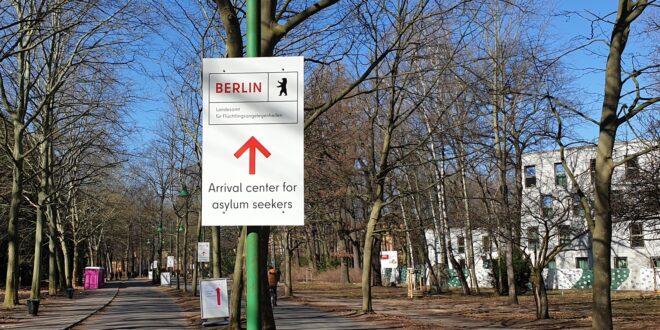The German Bundestag has passed the controversial “security package,” a set of legislative reforms aimed at, among others, tightening public order and asylum regulations. The new measures, including a ban on knives at public events, will primarily impact individuals who fall under the Dublin Regulation, which requires asylum seekers to apply for protection in the first EU country they enter.
Under the new law, which was approved by the Bundesrat on Friday, individuals classified as “Dublin cases” and obliged to leave Germany will no longer receive asylum-seeker benefits. Instead, they will be encouraged to voluntarily leave the country. The government’s goal is to expedite deportations and reduce the financial strain on the social welfare system by limiting support for those not eligible to remain.
As of the end of June 2024, approximately 24,900 individuals in Germany were classified as “Dublin cases,” with around 6,800 facing mandatory deportation. This new policy marks a significant step in the government’s broader efforts to reform migration laws, addressing growing concerns over the efficiency of asylum procedures and enforcement of deportations.
Critics, including opposition parties and human rights organizations, have expressed concern that cutting benefits will drive affected individuals into destitution, especially those who cannot be immediately deported due to legal or logistical challenges. They argue that such a policy risks creating hardship for vulnerable people, many of whom lack the means to return to their country of entry or face unsafe conditions there.
Supporters of the package, however, maintain that it is a necessary step to restore order to the asylum process and ensure fair enforcement of migration laws. They argue that the new regulations will help rebuild public confidence in Germany’s ability to manage migration effectively.
The passing of this law, in response to Islamist-inspired attacks earlier this year in the city of Solingen, marks a pivotal moment in the ongoing debate over asylum and immigration policy in Germany.
 THE AFRICAN COURIER. Reporting Africa and its Diaspora! The African Courier is an international magazine published in Germany to report on Africa and the Diaspora African experience. The first issue of the bimonthly magazine appeared on the newsstands on 15 February 1998. The African Courier is a communication forum for European-African political, economic and cultural exchanges, and a voice for Africa in Europe.
THE AFRICAN COURIER. Reporting Africa and its Diaspora! The African Courier is an international magazine published in Germany to report on Africa and the Diaspora African experience. The first issue of the bimonthly magazine appeared on the newsstands on 15 February 1998. The African Courier is a communication forum for European-African political, economic and cultural exchanges, and a voice for Africa in Europe.



































